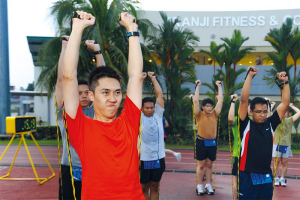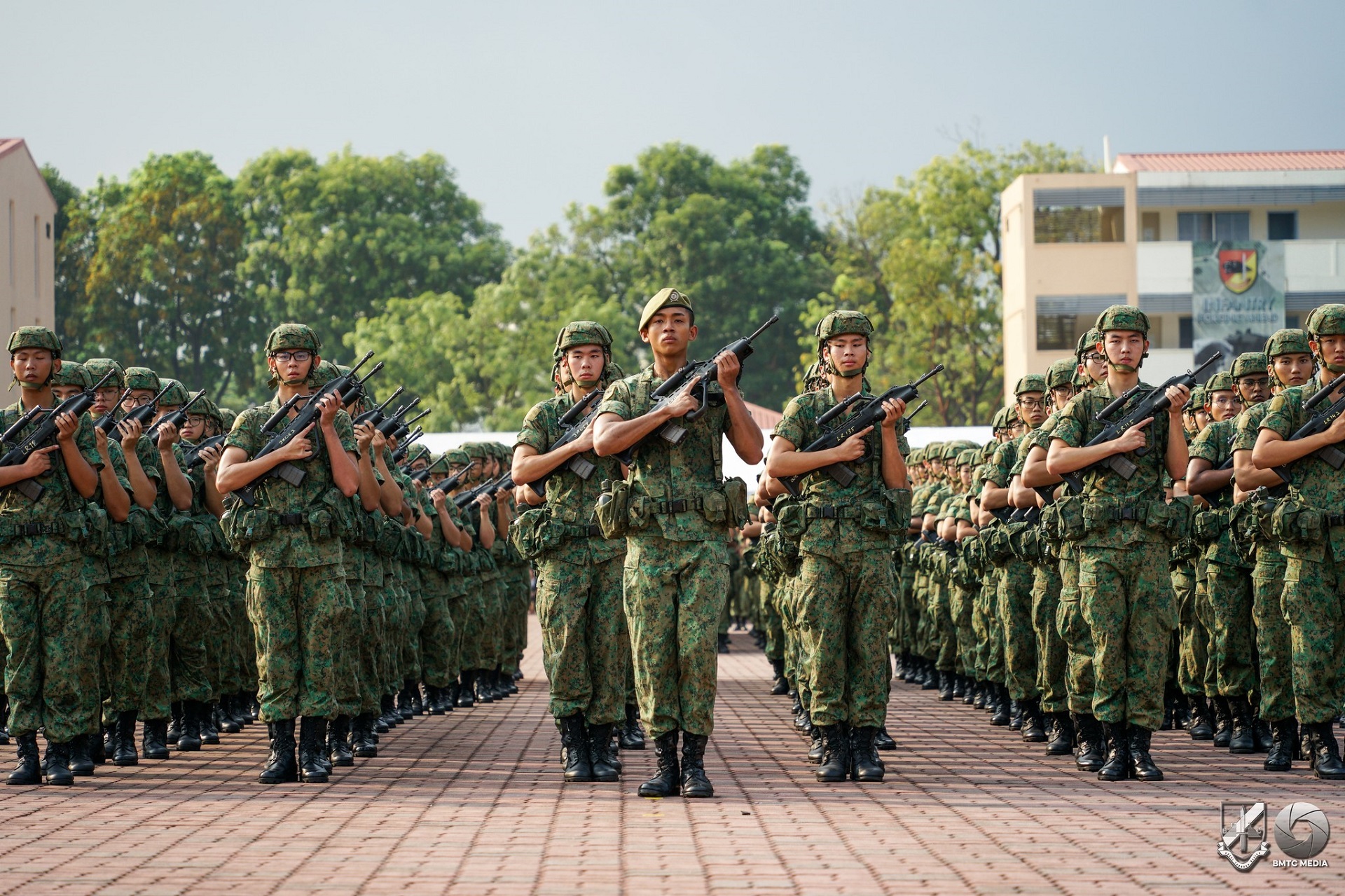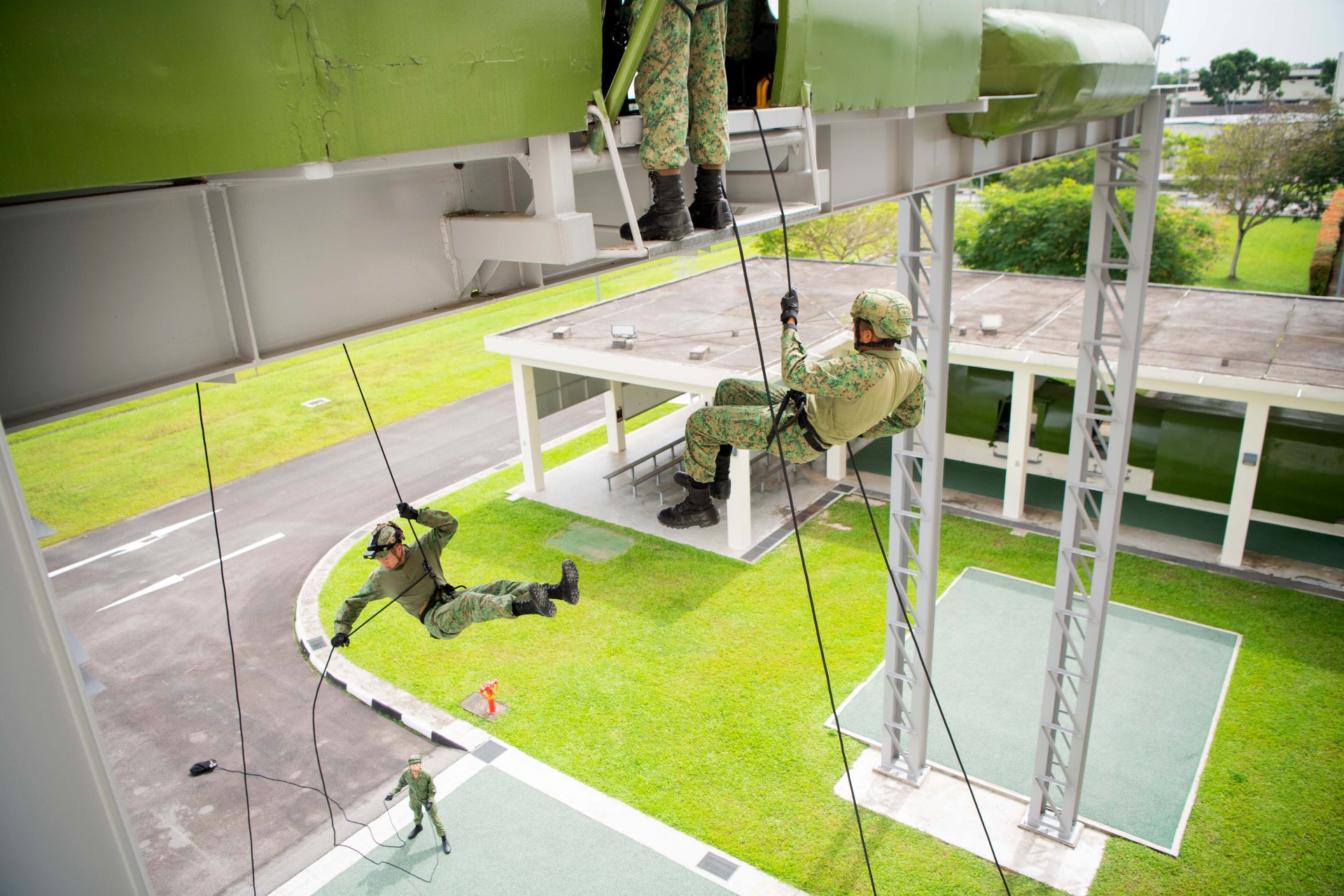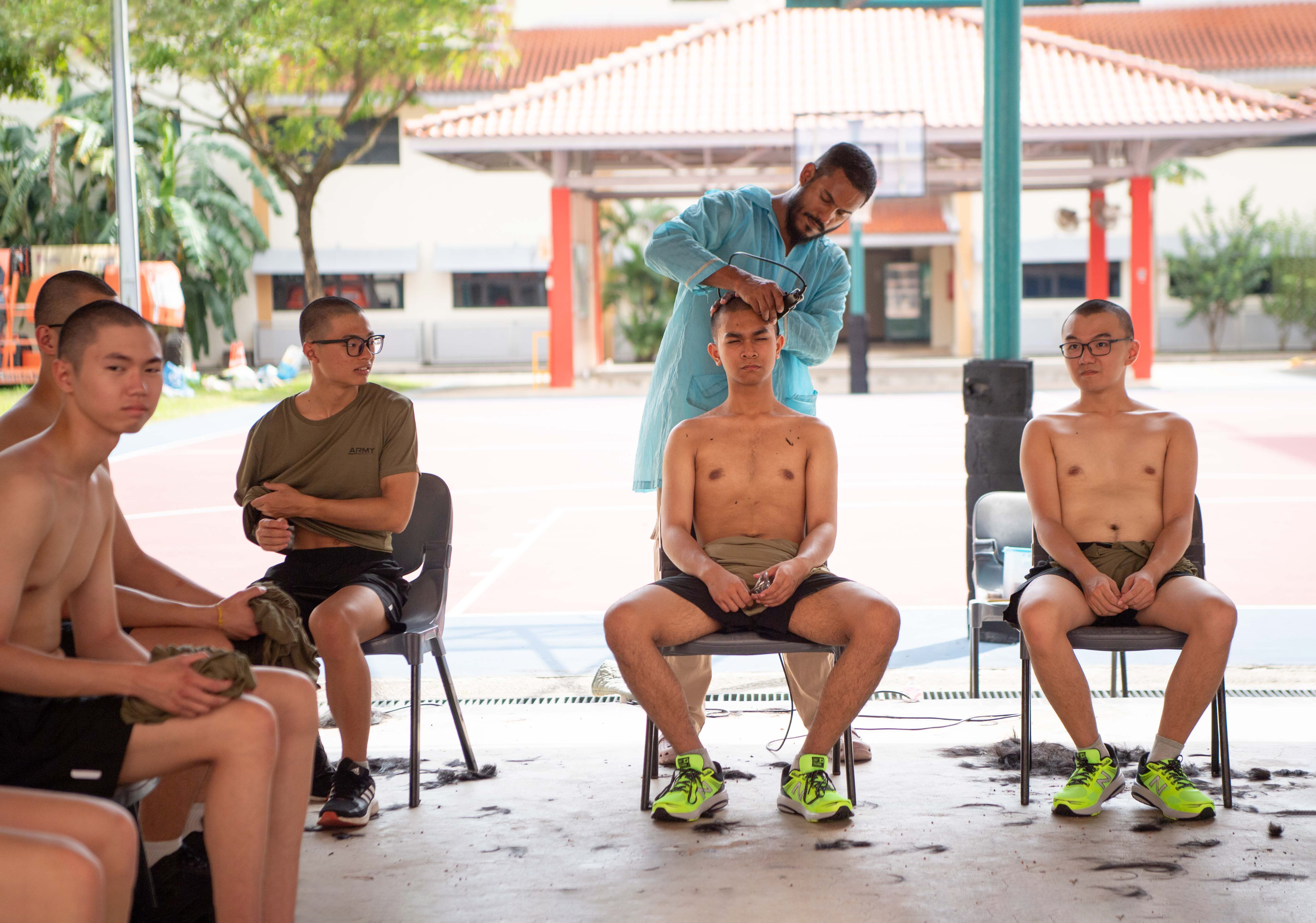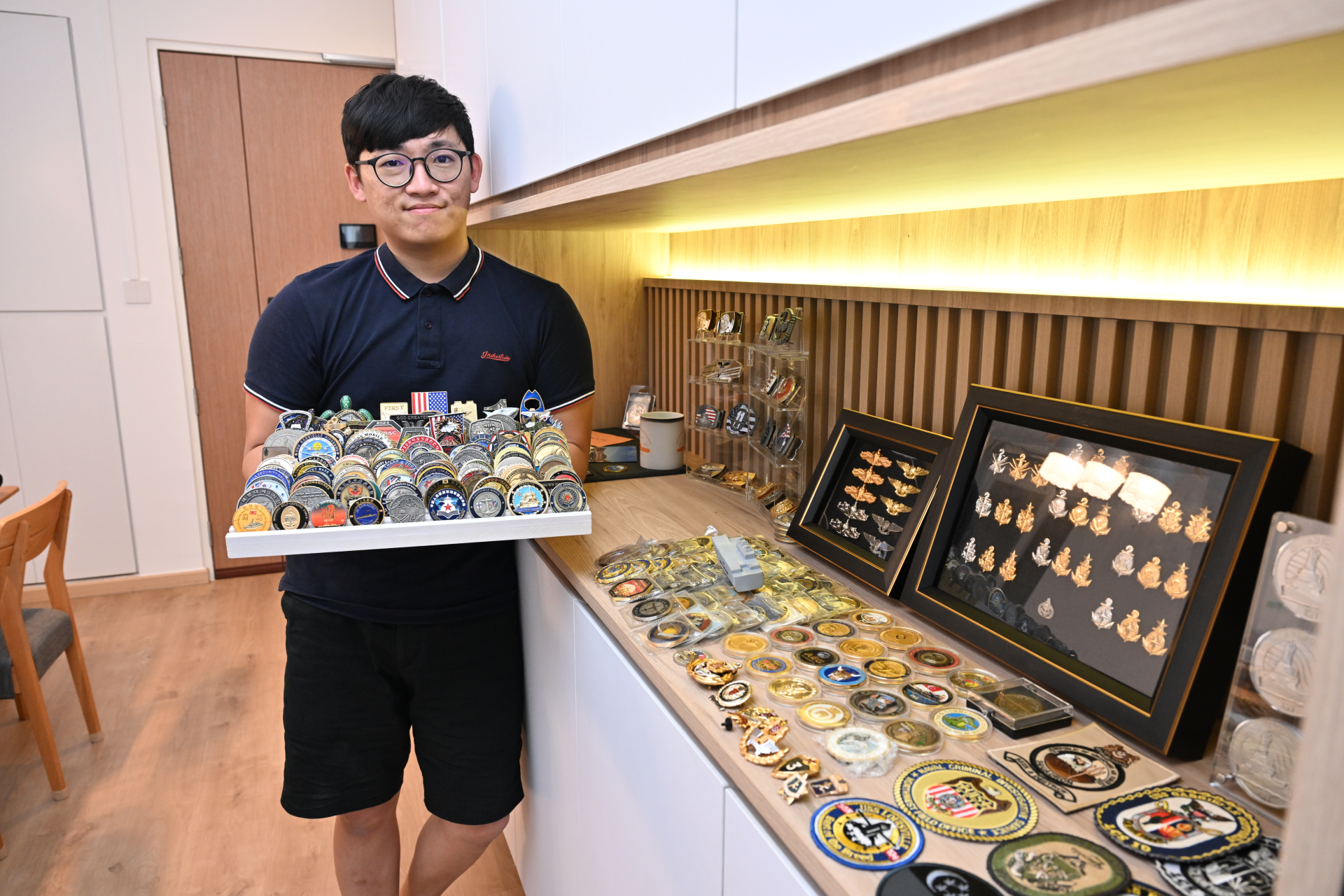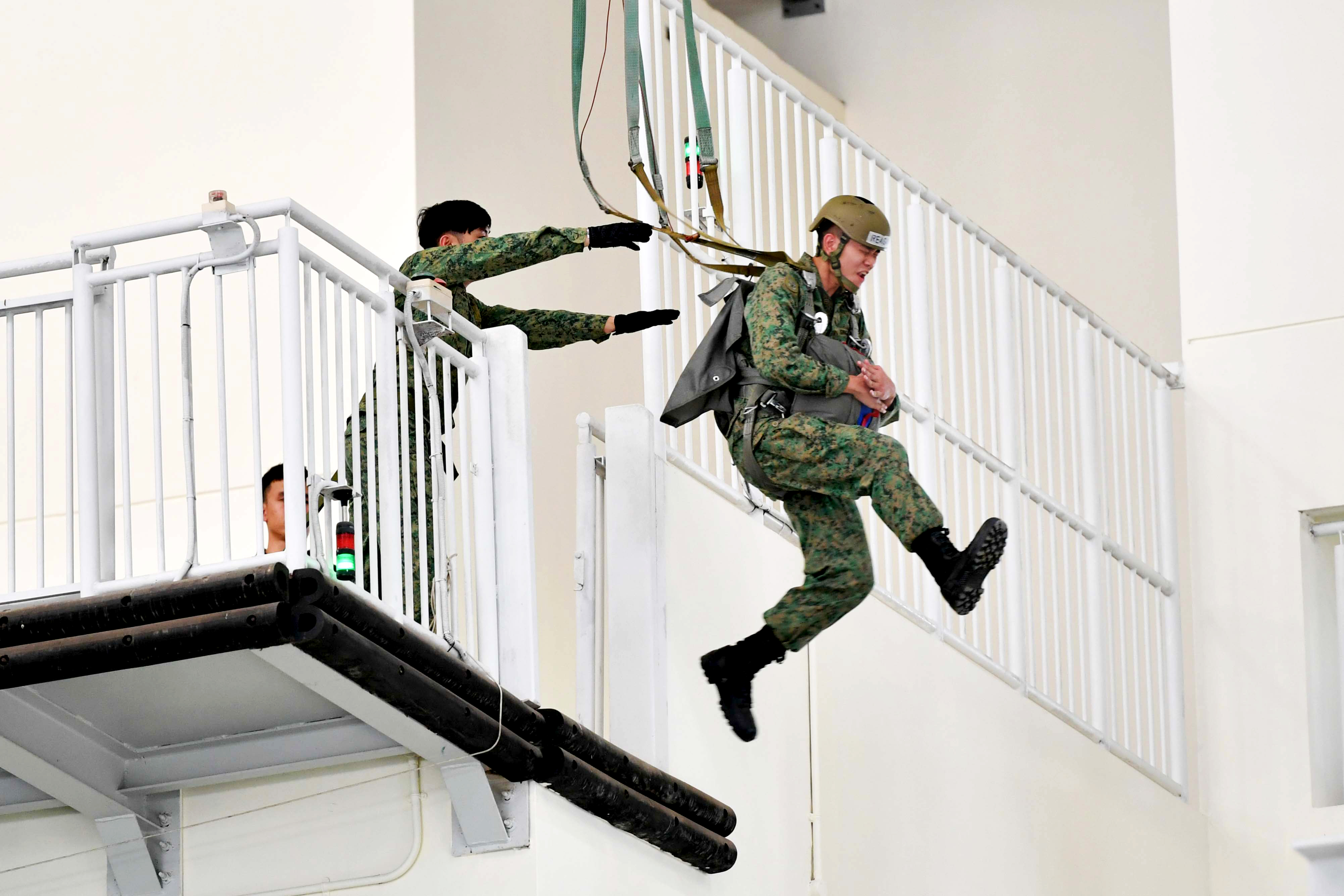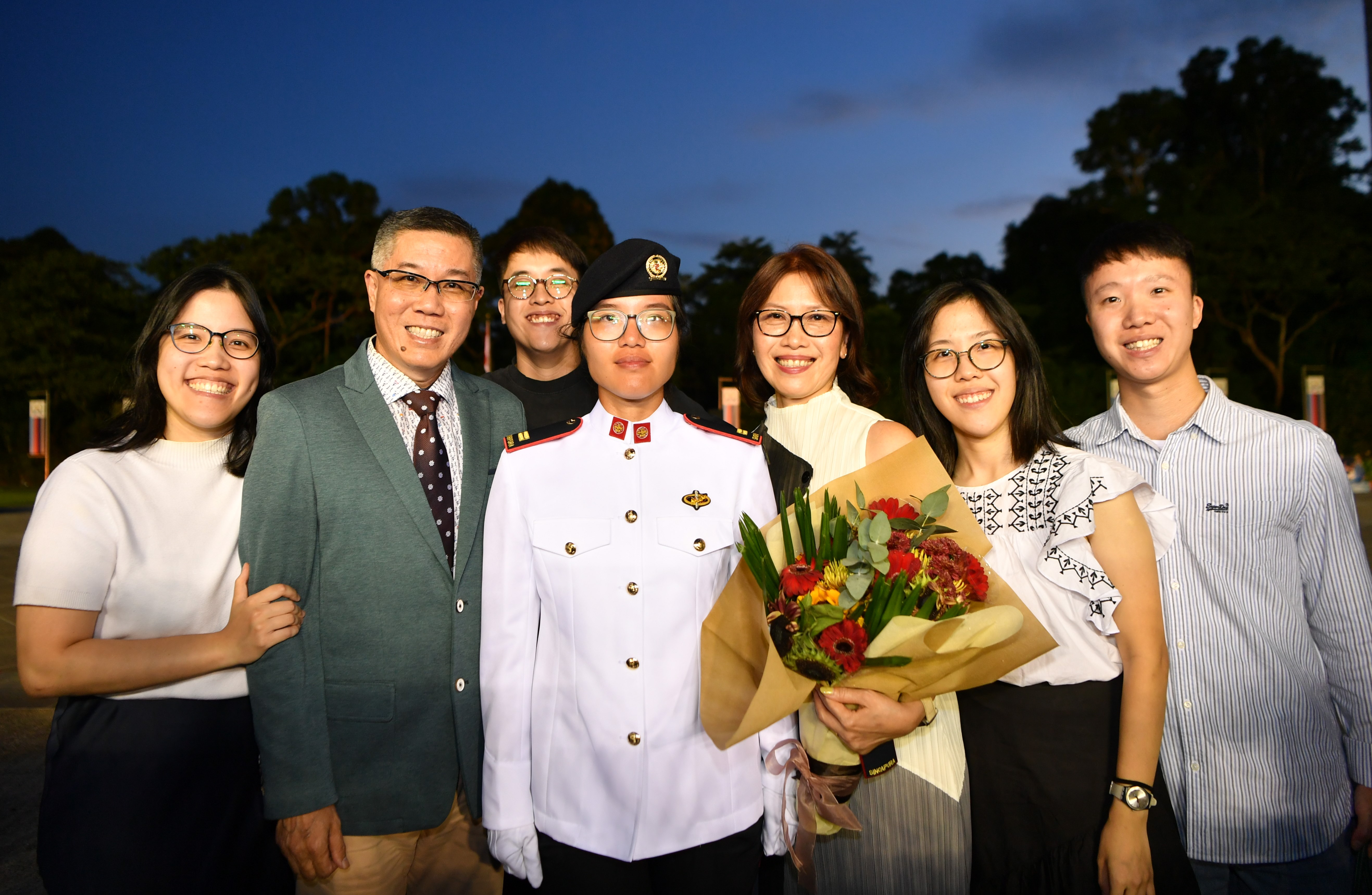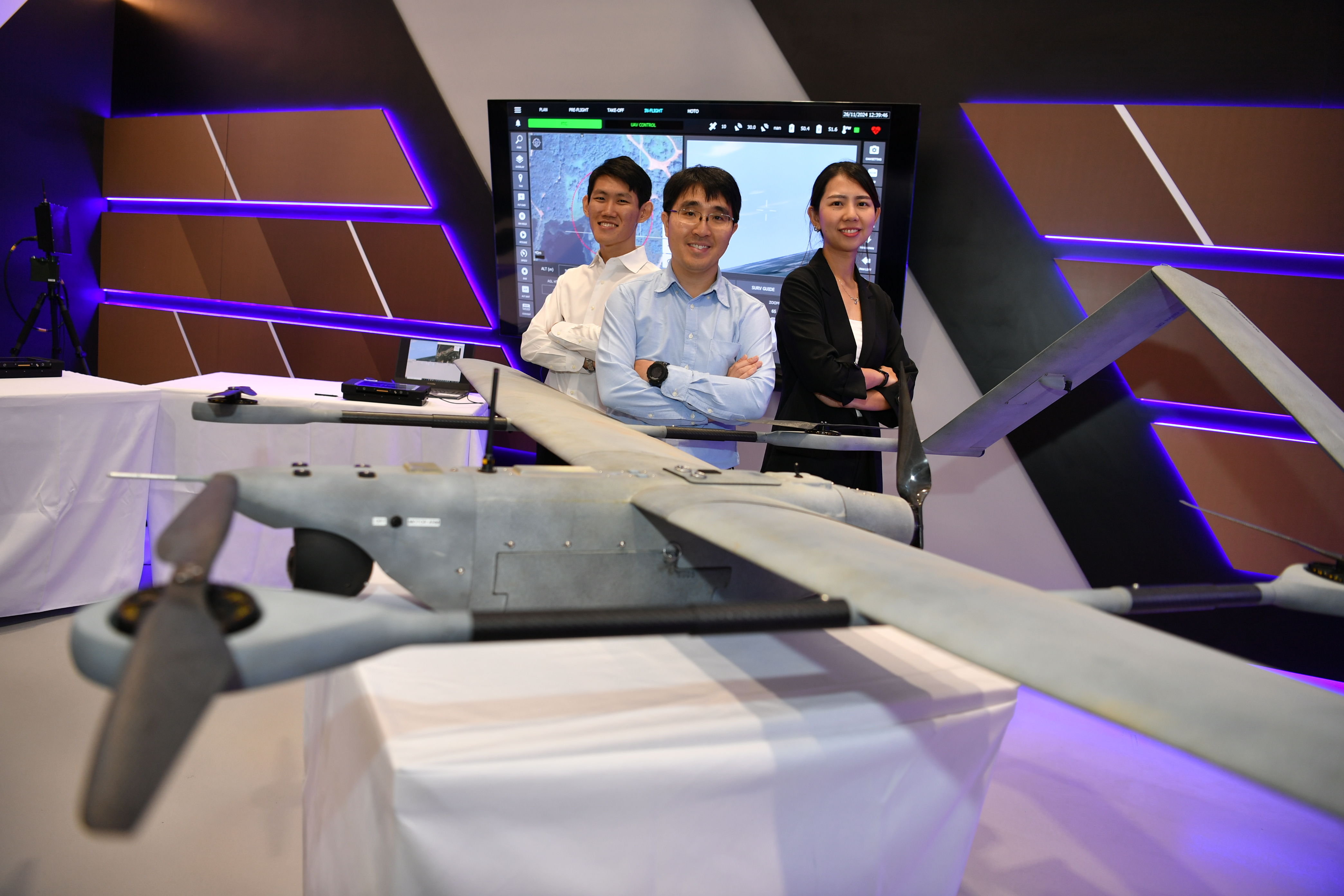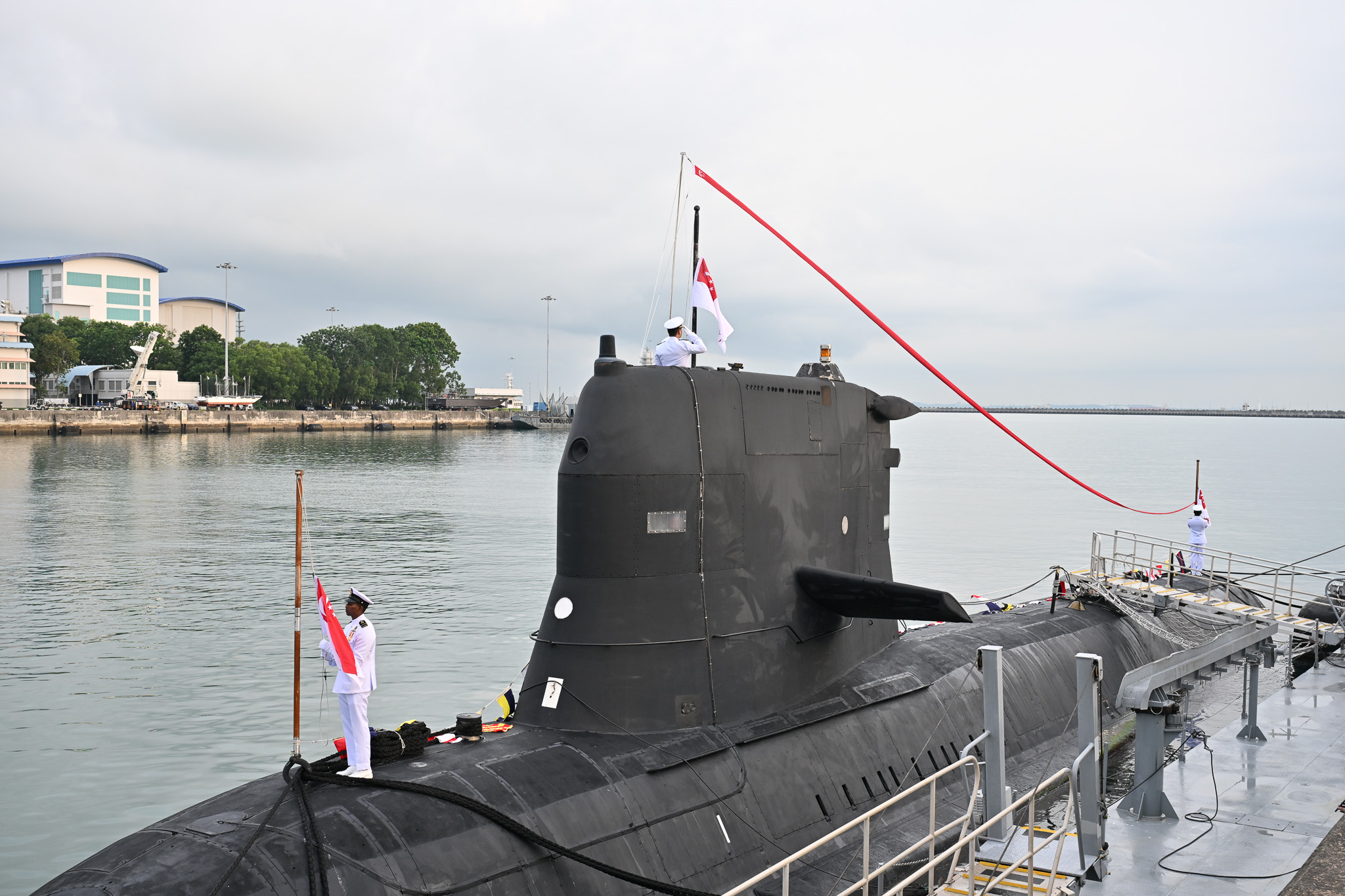GETTING FIT & HEALTHY THROUGH IPT
PHOTO // Benjamin Lee
More than a year after the Individual Physical Proficiency Test (IPPT) and IPPT Preparatory Training (IPT) Programme were enhanced, PIONEER looks at the effects of these changes on the fitness of Operationally Ready National Servicemen (NSmen).
"I tried to improve on my own; I practised my jumps at home but that didn't work." This was the frustration 30-year-old teacher Lieutenant (LTA) (NS) Adrian Yang experienced after failing his IPPT for the past two years because of his poor standing broad jump results.
With the IPT programme enhanced last April, NSmen now have nine months to go through 10 training sessions. Previously, the sessions had to be completed within five weeks.
NSmen who take up the IPT programme will attempt their IPPT in the first session to evaluate their performance level. They have to either pass their IPPT or meet Personal Performance Targets in the stations that they are weak in, be it the 2.4km run, shuttle run, chin-up, standing broad jump or sit-up station.
LTA (NS) Yang, a Platoon Commander in 91 Combat Service Support Battalion, explained why he took up the enhanced IPT programme: "It's flexible in terms of timing. As NSmen, we have a lot of commitments, and being able to spread out the training sessions across nine months made it manageable."
Fitness Specialist 3rd Sergeant (3SG) Lim Xiuan Pin spoke about what is done during the IPT sessions: "We focus on the participants' weak areas by doing strength training, coaching them on proper techniques, and advising on exercises they can do at home."
Meeting the mark
His 10 IPT sessions proved useful as LTA (NS) Yang passed his IPPT last December. He made a marked improvement in his standing broad jump as he went from a 198cm distance to 212cm. He also improved his 2.4km run timing from 12m to 11m:20s.
According to Commanding Officer Army Fitness Centre Lieutenant Colonel (LTC) Chua Boon Chuan, success cases like LTA (NS) Yang are not rare.
Since the enhancement last April to May this year, the IPT participation rate has increased by 182 percent.
LTC Chua commented on the improvements: "This meets the SAF's operational requirements... These are just figures, but what's important is knowing that our NSmen have the required level of fitness to stay combat-fit."
Although LTA (NS) Yang has managed to clear his last IPPT, he plans to carry on with the IPT programme as he aims to pass this year's IPPT with incentive.
If he is as determined as before, he can look forward to being $100 richer.
Enhanced IPT & IPPT
IPT: From a voluntary five-week programme, to a voluntary nine-month programme with customised Personal Performance Targets.
IPPT: One-year window re-calibrated to nine months for IPPT and three months for Remedial Training.
"Ultimately, we don't want to just help them pass (the IPPT); we also want to see them building up their fitness and leading healthier lives."
- 3SG Lim
